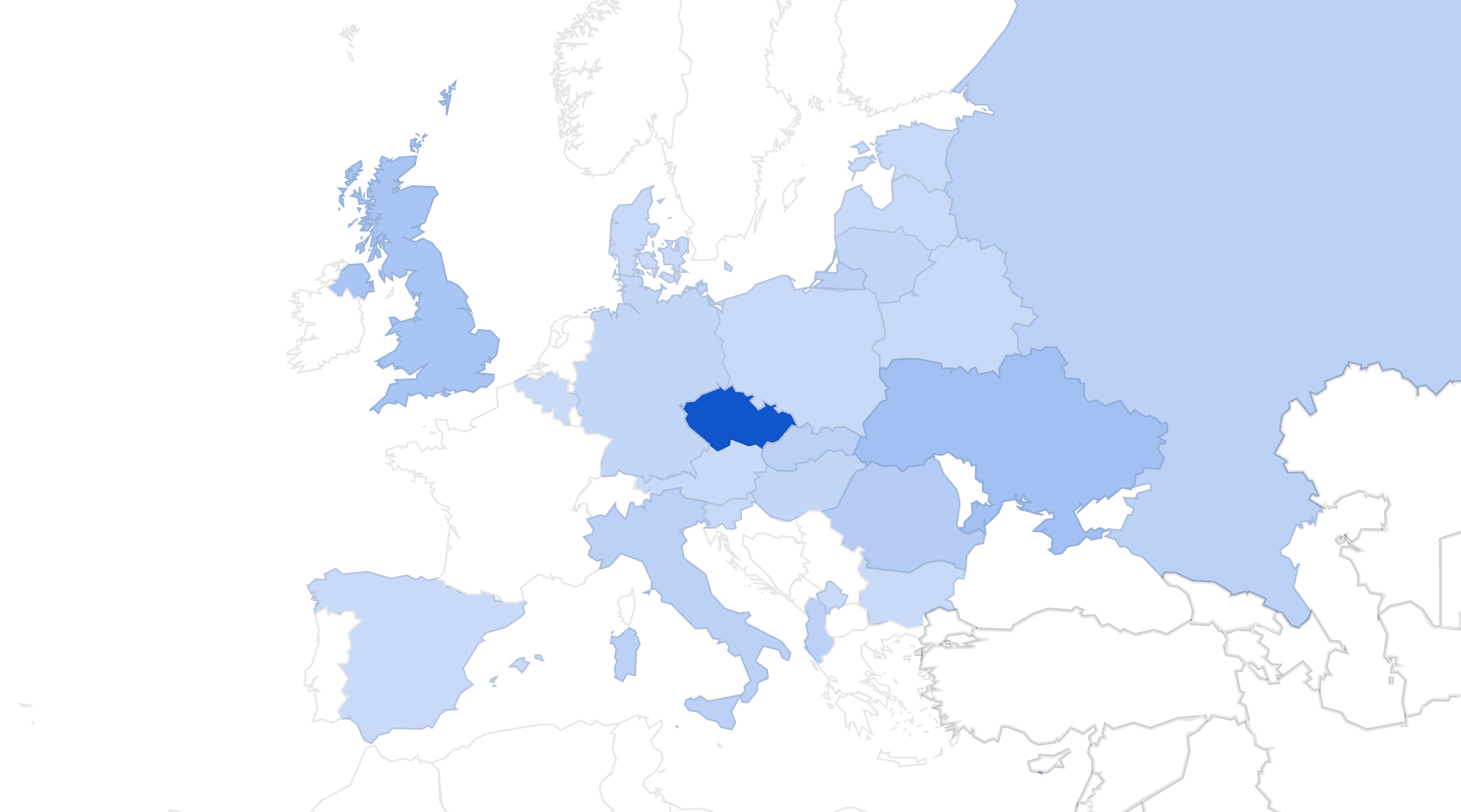4 Ways to Never Fail a StartupYard Interview
The 17th century French poet Boileau famously said: Ce que l’on conçoit bien s’énonce clairement, Et les mots pour le dire arrivent aisément. Or: “An idea well conceived presents itself clearly, and words to express it come readily.”
Or to put it bluntly: An idea isn’t any good unless it can be explained to someone else. If there were one piece of advice I could drill into the head of every brilliant startup founder I’ve met in my career, it would probably be just that.
But since we have some time, I’m going to go deeper. Here is:
How to Never Fail at A StartupYard Interview

StartupYard will begin interviews for Batch 8 next week, and in the meantime, we thought we would share with them (and you), 4 key strategies that any startup can use in an interview with us, or any investor, that will help them never to fail.
Now, this advice is not going to win you an investment 100% of the time.
Investments are complicated, and they involve the needs and priorities of multiple parties. A perfect meeting might not produce an investment for a million valid reasons. But I can guarantee that if you follow this advice well, you will not fail to give your best possible impression to an investor.
Follow this advice, and you will not fail for stupid reasons.
1. Answer Questions As They are Asked
Simple and yet incredibly difficult for many people. Answer a question as it is asked, not as you would like it to be asked.
Did someone ask you a question to which you can say Yes or No? Then say Yes, or No. Then explain your answer. If you’ve never interviewed someone, I can let you in on a secret: it is very obvious when someone does not want to answer your question.
It is also very annoying.
And this produces the world’s most frustrating non-answers to simple questions. The below example is not fiction:
-
- Are you making any revenue?
- Well, we only launched about 6 months ago, and we have been focusing on making partnerships with relevant partners who are going to help us scale to our target market, and define the right sales strategy while getting early feedback from customers.
- But are you making any revenue now?
- Currently we are in beta and we are talking with a few clients who are ready to become paying customers once the features they need are fully implemented.
- Are. You. Making. Any. Revenue?
- No.
- Thank you.
We don’t ask trick questions. What would be the point? And yet this behavior is widespread among startup founders. It is a learned behavior that must be slowly and painfully unlearned.

We want to know about what we’re asking about. So don’t try to give us the “right” answer. Just give us the real answer. What do you think is worse, us hearing that you aren’t making any revenue, or us leaving the meeting thinking you’re not even capable of answering simple questions?
And the real answer can contain the same information. Just in a slightly different format:
- Are you making any revenue?
- No. But we have a few customers who want to pay us as soon as we have the right features implemented. We only launched 6 months ago, and we’ve been focusing on partnerships.
- Ok, who are these customers, and what features do they want?
Now we’re getting somewhere. And it was so easy! Now we can move to more important questions. This is a real conversation.
If the purpose of an interview is to exchange information and to assess a relationship, we would much rather spend our time doing that, than trying to decode cryptic phrases and hints.
So answer the question.
2. Win the Argument: Lose the Interview
It might be in school where people learn that an impressive, intelligent answer to a question is necessarily the longest and the most complicated one. It might also be in school where we learn that the one who speaks last has won the argument. We probably learn that from watching our teachers. But are these really good lessons?

Among the worst qualities we observe in some founders is the need to triumph, rather than to persuade. But winning an argument is different from convincing someone you may be right, or that you at least know what you’re talking about. Winning is not the goal here.
Trust your interviewers to see you as a human being, and they will like you for it. Treat them as human beings, and they will love you. But make the interview into some sort of contest for control of the subject matter and the upper ground, and they will end up wanting to get rid of you.
So communicate. Don’t argue.
What’s the best answer to a question you don’t know how to answer? Try: “I don’t know.”
You might be surprised how much investors will respect a founder who is not afraid to admit they don’t know everything. In a room full of smart people, there are always going to be things you don’t know that others do.
When answering a question, watch the interviewers, and if they seem ready to speak or unsure what you’re saying, ask them: “is this answering your question?”
So much of what we do at StartupYard involves unlearning and deconstructing the behaviors and impulses that stop founders from being great communicators and effective leaders. Most of that boils down to their motivations in any given situation. What do you want to accomplish here? Do you want to win, or do you want to be understood?
So start with this simple goal in mind: you want the investors to know you. You want to get to know them. If in the course of an interview, you can achieve this basic understanding, on a human level, then you will have succeeded.
3. Look Like You Belong Here: Because You Do
My father wore a suit and tie to work for 30 years. When I got a bit older and started working, I told him I’d never wear a suit and tie to work.
What he said sort of took me by surprise. He said: “we dress according to social customs, not just to show respect for others, but also to show self-respect. We dress to show that we feel we belong.”

I still don’t wear a suit to work, because I work with startups, and nobody does. But still, I notice when a person is poorly or inappropriately dressed for any given situation.
And that can swing both ways: a guy in an immaculate 3-piece suit who wants to talk about his startup is as out of place as the guy in the bathrobe with sleep in his eyes. Neither belong in that situation. Failure to dress like you belong can show that you don’t respect the social customs of your surroundings, but also that you don’t see yourself as belonging to them.
So think just a bit about how you look. Do you look like a startup founder? If you’re not sure, you may need to think more about this. Not too much. But a little.
4. Plan Ahead: Most Questions are Obvious
Here are three things any startup investor should ask you about:
- What is the problem you’re solving?
- What is the solution?
- Who are your customers?
If you can’t answer these three questions clearly, and succinctly, then perhaps you don’t know the answers well enough yet.

And when you sit down to answer these questions, try and imagine an investor hearing this for the first time. What is that person likely to ask you?
- The problem we are solving is that X can’t Y when Z
- Why does X want to Y when Z?
- They just do…
Oops. Do you know why your problem is actually a problem? It might surprise you how frequently founders aren’t all that sure that the problem they’re solving is even a real problem at all.
Because “answering the question,” as in literally stating the problem, is not really answering the question. The object of the question is to get a useful answer: Why is it a problem? When is it a problem? How is it a problem? What is the result of the problem?
So be ready for a follow up. It will come.
Remember, a good investor, especially at an early stage, should be evaluating your ability to think clearly, as much as the idea you are describing to them. They can hate the idea, but be impressed with the clarity of your thinking. That happens to me all the time.
We have invested in companies whose ideas we didn’t fully agree with, because they showed they could think well and be receptive. That’s more valuable than an idea you love, and a founder who can’t answer simple questions about it. In assessing which of those two founders is likely to be a success, the one who can answer questions is the one we pick every time.












